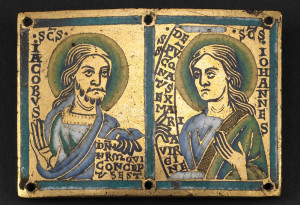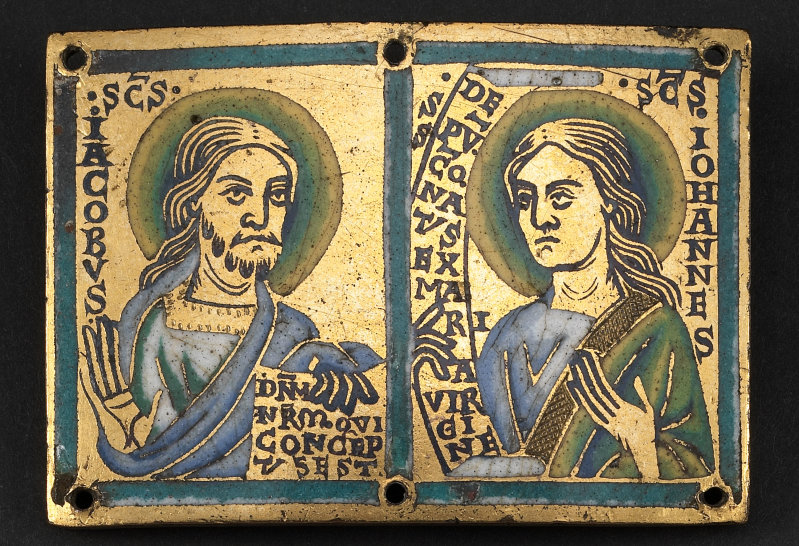
Central idea: Prayer in the face of difficulties. Doctrine: Christ’s redemptive death in God’s plan of salvation. Practical application: Co-redeemers with Christ.
Written as an aid for homilists and a resource for the faithful, this doctrinal homily outline (1) provides insights into the Lectionary readings, (2) explicates a doctrine of Catholic Faith or morals from them, and (3) shows specific ways lay persons can live these truths. (To read more about this approach, click here.)
This outline is written to be in accord with the Homiletic Directory issued by the Congregation for Divine Worship and the Discipline of the Sacraments (2014). (To read an excellent summary of the Homiletic Directory, click here.)
To view Lectionary 146, click here.
Central idea: Prayer in the face of difficulties
Reading 1 Is 53:10-11
The LORD was pleased
to crush him in infirmity.If he gives his life as an offering for sin,
he shall see his descendants in a long life,
and the will of the LORD shall be accomplished through him.Because of his affliction
he shall see the light in fullness of days;
through his suffering, my servant shall justify many,
and their guilt he shall bear.
- This is a fragment from what we call the Song of the Suffering Servant, an amazing foretelling of the Passion of Christ, but also the pattern in the life of everyone who shares in the cup and baptism of redemptive suffering that Our Lord will speak of.
- It takes grace for the Christian to see suffering as a gift which we can offer back to God. But we can see suffering as a gift we can offer to God and we can offer him this gift. When we do we become active and conscious co-redeemers with Christ.
Responsorial Psalm Ps 33:4-5, 18-19, 20, 22
R. Lord, let your mercy be on us, as we place our trust in you.
Upright is the word of the LORD,
and all his works are trustworthy.
He loves justice and right;
of the kindness of the LORD the earth is full.See, the eyes of the LORD are upon those who fear him,
upon those who hope for his kindness,
To deliver them from death
and preserve them in spite of famine.Our soul waits for the LORD,
who is our help and our shield.
May your kindness, O LORD, be upon us
who have put our hope in you.
- “Blessed are those who mourn for they shall be comforted” (Mt 5:4).
- Suffering comes to us and we cannot well escape it. We ask to be delivered from it and we wait to be delivered.
- Yet in Christ we have the gift of accepting our suffering and offering it to him as a treasure. Our suffering is allowed but not caused by God, not actively willed by God.
Reading 2 Heb 4:14-16
Brothers and sisters:
Since we have a great high priest who has passed through the heavens,
Jesus, the Son of God,
let us hold fast to our confession.
For we do not have a high priest
who is unable to sympathize with our weaknesses,
but one who has similarly been tested in every way,
yet without sin.
So let us confidently approach the throne of grace
to receive mercy and to find grace for timely help.
- Jesus is our great high priest who offers sacrifice to God for us so we can attain salvation from sin and death and be sanctified, even, as it were, divinized by God’s own life.
- But Our Lord’s sacrifice was his own suffering under every kind of humiliation wicked men could devise, a suffering only possible because he took on vulnerable human flesh. Thus, he can sympathize with us in our weakness because he has shared in it but without succumbing to sin.
- We have the right to ask him for grace, mercy, and aid.
Gospel Mk 10:35-45
James and John, the sons of Zebedee, came to Jesus and said to him,
“Teacher, we want you to do for us whatever we ask of you.”
He replied, “What do you wish me to do for you?”
They answered him, “Grant that in your glory
we may sit one at your right and the other at your left.”
Jesus said to them, “You do not know what you are asking.
Can you drink the cup that I drink
or be baptized with the baptism with which I am baptized?”
They said to him, “We can.”
Jesus said to them, “The cup that I drink, you will drink,
and with the baptism with which I am baptized, you will be baptized;
but to sit at my right or at my left is not mine to give
but is for those for whom it has been prepared.”
When the ten heard this, they became indignant at James and John.
Jesus summoned them and said to them,
“You know that those who are recognized as rulers over the Gentiles
lord it over them,
and their great ones make their authority over them felt.
But it shall not be so among you.
Rather, whoever wishes to be great among you will be your servant;
whoever wishes to be first among you will be the slave of all.
For the Son of Man did not come to be served
but to serve and to give his life as a ransom for many.”
- We want you to do for us whatever we ask of you. This is a nakedly honest and bad prayer. Of course I want what I want, because what I want seems good to me, but what I want, whatever I ask, may actually be bad for me or for others. A perfect prayer would be to echo Our Lord in Gethsemane: Lord, I want you to do this for me, but even more I want you to do for me whatever you want to do for me.
- You do not know what you are asking. This is so often the case for us. We ask for something like James and John did but we don’t know the cost. When the cost is pointed out to us, we may say we will pay it—as the brothers do—or go away sad—as the rich young man did—but we don’t know the actual cost until we experience it. To drink the cup and to undergo the baptism was much harder than the brothers could know. And probably to leave everything behind to follow Jesus would have been much easier than the rich young man imagined. The bottom line is, God knows better than we do, so we pray wisely, Thy will be done.
- The brothers are right to understand that Our Lord chose them along with the other ten apostles to be rulers, but they did not understand the kind of rulers they were to become.
- Whoever wishes to be great among you will be your servant; whoever wishes to be first among you will be the slave of all.
- This kind of ruling is currently called servant leadership. It is love applied to ruling. Love is willing the good of the other, even if this requires sacrifice—in Our Lord’s case, his passion and death, a sacrifice Jesus declared James and John would participate in.
- Over time, the two brothers received a marvelous formation, because they went from foolish self-seeking to profound self-giving.
Doctrine: Christ’s redemptive death in God’s plan of salvation
- Even though every person who contributed to Christ’s passion and death did so freely (and so were responsible for their own acts), God predestined, that is, he planned and foreknew what happened, taking man’s freedom into account (CCC 599-600).
- This plan of salvation was foretold in the Sacred Scriptures, that is, the texts we call the Old Testament. Our reading today from the Prophet Isaiah is one example (CCC 601).
- “For our sake God made him to be sin.” This means that Christ “assumed us in the state of our waywardness of sin,” putting himself in complete “solidarity with us sinners.” (CCC 602-603).
- God did this for everyone, out of his “benevolent love, prior to any merit on our part,” while we were still in sin (CCC 604-605).
- Although we tend to focus on Christ’s passion, his entire life from the moment of his conception was a loving and obedient offering to the Father in order to reveal the love between the Father and the Son and to redeem us (CCC 606-608).
- Our Lord Jesus Christ freely embraced God’s plan for our salvation. “In suffering and death his humanity became the free and perfect instrument of his divine love which desires the salvation of men” (CCC 609).
Practical application: Co-redeemers with Christ
- With the grace of the redemption, we can freely join ourselves to Christ’s saving work. The words of the Suffering Servant can be applied to us by uniting our lives to Our Lord’s.
- Our entire life, just like Christ’s entire life, can be an offering to God: our sleeping and waking, our pleasures and pains, our love and friendship, and our work.
- Christ’s solidarity with us while we were yet sinners can also be the basis for a solidarity in love among all his followers.
- Since Christ loves everyone and wants all to be saved, our offering must also include apostolate. We should announce Christ’s redemption to others, regardless of their disposition, out of benevolent love, prior to any seeming merit on their part.
- While our entire life can be one of co-redemption, our own suffering and dying can be our own “free and perfect instrument” of our love for God “which desires the salvation of men” (CCC 609).

Leave a Reply